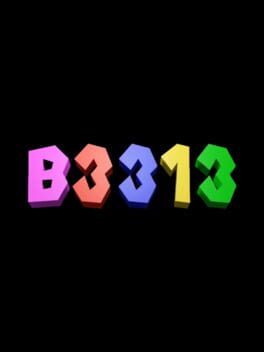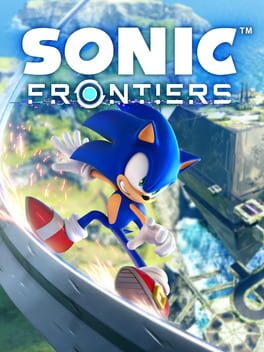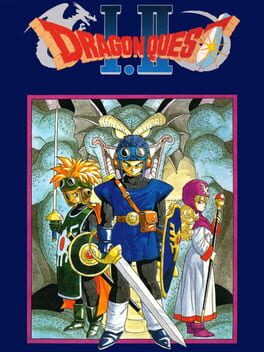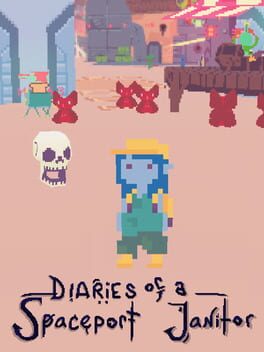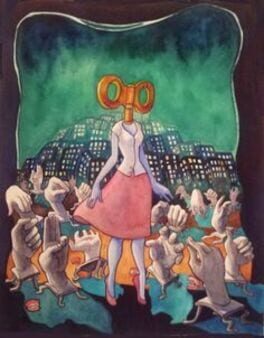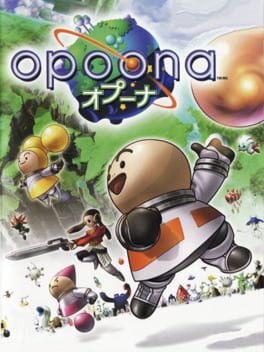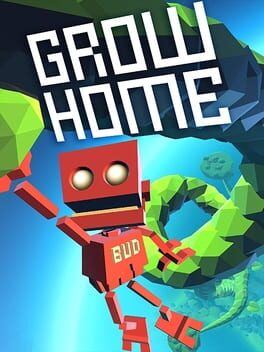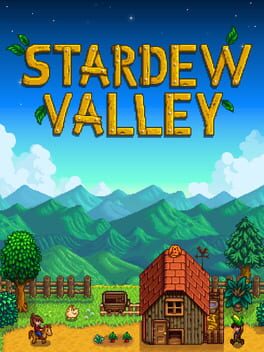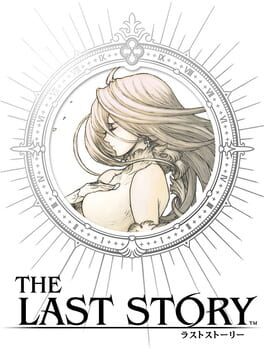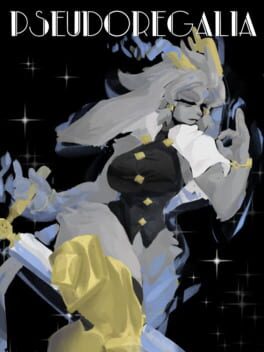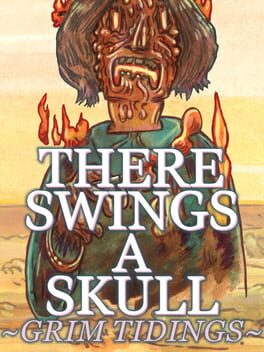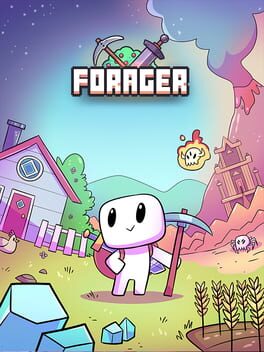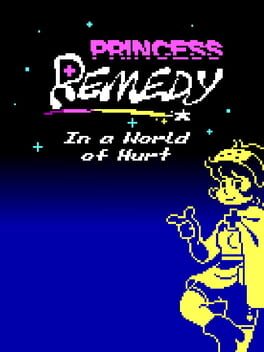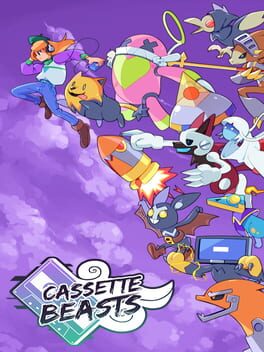MeiCheesecake
2021
It's my opinion that to fully appreciate what this game is you have to be a little obsessed with the whole Mario 64 mythology that has been built up throughout the years. Lost builds both real and fake, never ending reports of players finding eerie and unfitting elements in such a classic game that pretty much always has eyes on it, the rise of analog horror fueling a new wave of atmosphere and nostalgia focused content - everything plays a part in it.
I often see the argument that the new generation of internet users is "making horror not scary", pointing out how the Backrooms now resembles the SCP Foundation and blaming them for the mascot horror trend that has produced some less than stellar cash grabs. While I personally don't enjoy the "personalization AI" theory and many other concepts that are a bit too far off from reality... so what?
I think that, when faced with a company such as Nintendo, who has the tightest grip on what Mario is and how you should be experiencing at every second of their games with the sole intent of fueling more dollars into their bank accounts, the boldest thing you can do is create something that is cringe. Something that doesn't make sense - or rather, only makes sense to you, at a certain mindset and point in time. Become unmonetizable. Make Mario have the hyper realistic bloody eyes if you want. It's your game.
In a climate where games preservation pretty much /has/ to overlap with piracy to be effective, I think making a rom hack like this that takes elements from real old SM64 builds and combining them with fanmade concepts and rumors old and new is fantastic. It's taking this game that is held to such high standards as "the beginning of 3D gaming" or whatever and getting weird with it.
After 20+ stars of playing, it becomes impossible to differentiate what is real, fake, old or new. It's eerie and comforting and nostalgic and innovative and any other feelings that it makes you feel. It can always be "that deep". It's oddly exciting to get to play something that wasn't ready to be shown to you. Some of the maps even kill you after a certain amount of time to prevent you from seeing the unfinished content. I think that's awesome. Games don't come out of thin air ready, they go through multiple iterations and what you get from the store is the cleanest, most sanitized and marketable version.
I think Mario should run through 5 identical castle lobbies until he goes through 3 fake paintings in a row and eventually reaches a huge cake with an equally huge star - which is actually a quicksand trap that kills him instantly. I'm glad someone else agrees.
I often see the argument that the new generation of internet users is "making horror not scary", pointing out how the Backrooms now resembles the SCP Foundation and blaming them for the mascot horror trend that has produced some less than stellar cash grabs. While I personally don't enjoy the "personalization AI" theory and many other concepts that are a bit too far off from reality... so what?
I think that, when faced with a company such as Nintendo, who has the tightest grip on what Mario is and how you should be experiencing at every second of their games with the sole intent of fueling more dollars into their bank accounts, the boldest thing you can do is create something that is cringe. Something that doesn't make sense - or rather, only makes sense to you, at a certain mindset and point in time. Become unmonetizable. Make Mario have the hyper realistic bloody eyes if you want. It's your game.
In a climate where games preservation pretty much /has/ to overlap with piracy to be effective, I think making a rom hack like this that takes elements from real old SM64 builds and combining them with fanmade concepts and rumors old and new is fantastic. It's taking this game that is held to such high standards as "the beginning of 3D gaming" or whatever and getting weird with it.
After 20+ stars of playing, it becomes impossible to differentiate what is real, fake, old or new. It's eerie and comforting and nostalgic and innovative and any other feelings that it makes you feel. It can always be "that deep". It's oddly exciting to get to play something that wasn't ready to be shown to you. Some of the maps even kill you after a certain amount of time to prevent you from seeing the unfinished content. I think that's awesome. Games don't come out of thin air ready, they go through multiple iterations and what you get from the store is the cleanest, most sanitized and marketable version.
I think Mario should run through 5 identical castle lobbies until he goes through 3 fake paintings in a row and eventually reaches a huge cake with an equally huge star - which is actually a quicksand trap that kills him instantly. I'm glad someone else agrees.
2022
1993
I don't think there's a rating I could give this rating that would really convey what I think about it. If I was to rate it based on how much fun I've had with my overall personal experience with both of these games, I would say 3.5/5 would be accurate.
But that might not be saying much about the actual game itself, since I made heavy use of save states and fast forwarding and had a walkthrough on me at all times. These games can definitely be beat without those, but it'd take exponentially more time and investment that I personally can't afford to spend. It's definitely a game made for the era of game manuals, magazine hints, and sharing info and rumors with friends. There were a handful of pretty arbitrary "inspect this specific tile to get the item" moments that the NPC hints don't help with very much, and other design choices that would be very obtuse to get through even if you were playing in the right cultural landscape (can 4 tiles of poison really be considered a whole swamp?).
Dragon Quest I was the roughest for me. I've seen some variation of "a one hour game with X hours of grinding" floating around in relation to it and I definitely think its true. And while I didn't like grinding in theory, I can appreciate it in a narrative level. This is essentially a power fantasy, a lone warrior who has the blood of the hero in them and sets forth to gather all the ancient artifacts necessary to save the world, growing in power along the way until they can perform the same heroic feats as Erdrick himself. Leveling up truly feels like an accomplishment, you can immediately feel how much stronger you have become and even get a new spell if you're lucky.
Speaking of, I found it very interesting that most of your spells are essentially replacements for items you'd otherwise need to find or purchase (Radiant for torches, Return for wyvern wings). You only really have 3 main actions in battle - physical attack, magic attack, heal - and so with tougher enemies it can feel like trial and error until you find the right order to perform them in.
Trial and error is also how you find your next destination most of the time, as NPCs at most hint at a general direction you should be walking to. The map isn't awfully big, but your walking speed is very slow and the encounter rate is very high.
I was very impressed with Dragon Quest II right off the bat. I was not expecting an opening cutscene, and I wasn't aware this was the game that introduced groups of enemies. The difficult felt steeper at first, but it all makes sense once you find out that there's multiple party members now. The little fetch quest to recruit the Prince was pretty nice, wasn't expecting a scripted (as much as they could) sequence that went on for that many steps. The puzzle to recruit the Princess was nice as well, even if less elaborate. The party members don't quite have archetypes just yet (single vs multi target focus is the most I can call them), but they still feel somehow distinct from each other. The main character being the most unique since they don't have any spells. The multiple party members and multi enemy encounters really increase the scale and tension of the battles, I'd say it's on par with something like SMT when it comes to teaching you to use status effects by making your life miserable if you don't.
The first continent feels like a very polished experience. The environment was shaped in a way where you don't have as many choices at once and so don't feel as overwhelmed as DQ1. That said, that all goes away when you unlock the boat and I'd say it gets worse than the first one in terms of finding where to go. The NPCs that give you hints are now spaced hundreds of tiles and encounters apart. One of the five crests was found not by interacting with anything inside a building, but with one of the trees right outside it (stuff that involved finding non-exit tiles really weren't my favorite). There is an item that helps you find them, but it is literally hidden on an arbitrary point in the sea (literally) of similar looking tiles.
Aside from some particularly frustrating grinding and pathfinding moments, I've had fun with these games and understand better why they became a foundation for the whole genre. I can also understand some more references in Dragon Quest Builders 2, which was admittedly my main motivation for playing this.
But that might not be saying much about the actual game itself, since I made heavy use of save states and fast forwarding and had a walkthrough on me at all times. These games can definitely be beat without those, but it'd take exponentially more time and investment that I personally can't afford to spend. It's definitely a game made for the era of game manuals, magazine hints, and sharing info and rumors with friends. There were a handful of pretty arbitrary "inspect this specific tile to get the item" moments that the NPC hints don't help with very much, and other design choices that would be very obtuse to get through even if you were playing in the right cultural landscape (can 4 tiles of poison really be considered a whole swamp?).
Dragon Quest I was the roughest for me. I've seen some variation of "a one hour game with X hours of grinding" floating around in relation to it and I definitely think its true. And while I didn't like grinding in theory, I can appreciate it in a narrative level. This is essentially a power fantasy, a lone warrior who has the blood of the hero in them and sets forth to gather all the ancient artifacts necessary to save the world, growing in power along the way until they can perform the same heroic feats as Erdrick himself. Leveling up truly feels like an accomplishment, you can immediately feel how much stronger you have become and even get a new spell if you're lucky.
Speaking of, I found it very interesting that most of your spells are essentially replacements for items you'd otherwise need to find or purchase (Radiant for torches, Return for wyvern wings). You only really have 3 main actions in battle - physical attack, magic attack, heal - and so with tougher enemies it can feel like trial and error until you find the right order to perform them in.
Trial and error is also how you find your next destination most of the time, as NPCs at most hint at a general direction you should be walking to. The map isn't awfully big, but your walking speed is very slow and the encounter rate is very high.
I was very impressed with Dragon Quest II right off the bat. I was not expecting an opening cutscene, and I wasn't aware this was the game that introduced groups of enemies. The difficult felt steeper at first, but it all makes sense once you find out that there's multiple party members now. The little fetch quest to recruit the Prince was pretty nice, wasn't expecting a scripted (as much as they could) sequence that went on for that many steps. The puzzle to recruit the Princess was nice as well, even if less elaborate. The party members don't quite have archetypes just yet (single vs multi target focus is the most I can call them), but they still feel somehow distinct from each other. The main character being the most unique since they don't have any spells. The multiple party members and multi enemy encounters really increase the scale and tension of the battles, I'd say it's on par with something like SMT when it comes to teaching you to use status effects by making your life miserable if you don't.
The first continent feels like a very polished experience. The environment was shaped in a way where you don't have as many choices at once and so don't feel as overwhelmed as DQ1. That said, that all goes away when you unlock the boat and I'd say it gets worse than the first one in terms of finding where to go. The NPCs that give you hints are now spaced hundreds of tiles and encounters apart. One of the five crests was found not by interacting with anything inside a building, but with one of the trees right outside it (stuff that involved finding non-exit tiles really weren't my favorite). There is an item that helps you find them, but it is literally hidden on an arbitrary point in the sea (literally) of similar looking tiles.
Aside from some particularly frustrating grinding and pathfinding moments, I've had fun with these games and understand better why they became a foundation for the whole genre. I can also understand some more references in Dragon Quest Builders 2, which was admittedly my main motivation for playing this.
This review contains spoilers
I would classify this as one of those games that people claim isn't meant to be fun, like Pathologic. It's not really groundbreaking or innovative, but it perfectly expresses what it sets out to and that guarantees it a 5/5 in my view.
It really does feel like "an adventure game without the adventure" or an "anti-adventure". The planet of Xabran's Rock is full of all kinds of colorful people: spellcasters, rogues, androids - adventurers. But you're not one of them. You're the janitor. The "sanidrone". Despite the fact that you were cursed to have a skull yelling at you at all times, you're still leagues more mundane and unimportant than even the blandest vendor there is.
There is a constant sense that nothing in this place - from the items you pick up to the environment itself - is truly meant "for you". You can pick up powerful spell components, but you don't have the expertise to use them; You can stumbled across powerful drugs, gems, and technology that costs more credits than you'll ever make in your entire life, but you're at the mercy of the vendors that will only pay you 10 credits at best regardless.
Selling items by itself is a pain. First you have to make your way to the correct vendor, which is a (intentionally designed) nightmare as the map is confusing and the arrows oftentimes don't help at all, and some of them switch places on the daily. Then you have to hope their randomized stock lines up with what you want to sell. And finally, you have to pray they're willing to pay a decent amount for it. They aren't most of the time. There is no consistency, no pattern to follow. It's all luck.
Said luck is one of the few things you can precisely quantify in this game along with your money, but it doesn't really seem to matter. More luck didn't seem to accelerate the pace in which I found the goddess fetishes, I found most of them while I was in the negatives. Random food and genders on the ground were so sparse that I really couldn't tell if my luck was affecting them at all.
It's not like there wasn't any progression. The items I found on the ground did change, regardless if through the luck stat or based on the amount of hours I put into the game. I started finding whole metal plates instead of scraps, and once I stumbled across "the dankest weed in Xabran". But these items weren't made for me. This would be a lucky find for anyone else. All I ever hoped to find was food, gender or worship items.
The game conditions you into sticking to your profession as a janitor. Finding the vendor that will maybe buy this item for more than 2 credits is going to take time, time I could be using to burn trash and make a miserable but stable earning. It's not like I couldn't abandon my job and focus solely on selling, but I would risk starving to death. The metaphor is clear.
And the ending is... depressing. I worked harder than ever to gather resources (600 credits in my case, the arguably cheapest option) to break the skull's curse. I then go to sleep. I wake up with said skull speaking actual words to me, words of apology and a promise that I can finally leave to go on my very own adventure. I set out in the middle of the night, path illuminated by floating lanterns, and board the ship (or air?) to start my new life.
Then I woke up. Hungry, dysphoric, with 4 credits to my name. No curse, but also no adventure. Today is Delviday. My payment of 18 credits for burning 50 pieces of garbage just came through.
But it's not like it was a joyless experience either. I think the religion aspect of the game is oddly comforting in a way. Even if luck doesn't really help you much in practice, it always felt nice to pray or put down an offering and hear the luck increase (I think?) jingle. The shrines served as both landmarks to help me navigate and the focus of some jokes I cracked at myself to keep entertained amidst the grind. Are you lost? Turn the corner. You found Beb. Works every time.
It's one of the only things in this game that is consistent. You pray, you get more luck. Even if that doesn't really mean anything, it's a fact. You have 9 deities looking out for you at all time. Maybe they don't understand that helping you find a powerful laser blaster won't be enough to release you from capitalism. Or maybe they're just as powerless as you are.
Aside from the cops/military, every other talking NPC seems to be sympathetic or at least neutral to you. A lot of them inform you on different ways to gain or avoid losing luck, which is a tutorial but also a way to show they're also relying on fate and want you to succeed as much as they want to themselves. It feels like everyone has a rich and unique life story that exists even if you can't be a part of it.
My favorite thing in this game were the Theday festivals. Their gameplay significance is obviously that the ground is littered with Thedule effigies, which I could grab and keep for a significant luck increase. But sometimes I just spent a couple of minutes in front of the many bands performing across town, taking a moment to enjoy the music even if my pay would be gutted. It's okay to enjoy yourself.
Also, gender treatment is the same price of a protein drink? And it works immediately? Maybe it's not such a dystopian world after all.
It really does feel like "an adventure game without the adventure" or an "anti-adventure". The planet of Xabran's Rock is full of all kinds of colorful people: spellcasters, rogues, androids - adventurers. But you're not one of them. You're the janitor. The "sanidrone". Despite the fact that you were cursed to have a skull yelling at you at all times, you're still leagues more mundane and unimportant than even the blandest vendor there is.
There is a constant sense that nothing in this place - from the items you pick up to the environment itself - is truly meant "for you". You can pick up powerful spell components, but you don't have the expertise to use them; You can stumbled across powerful drugs, gems, and technology that costs more credits than you'll ever make in your entire life, but you're at the mercy of the vendors that will only pay you 10 credits at best regardless.
Selling items by itself is a pain. First you have to make your way to the correct vendor, which is a (intentionally designed) nightmare as the map is confusing and the arrows oftentimes don't help at all, and some of them switch places on the daily. Then you have to hope their randomized stock lines up with what you want to sell. And finally, you have to pray they're willing to pay a decent amount for it. They aren't most of the time. There is no consistency, no pattern to follow. It's all luck.
Said luck is one of the few things you can precisely quantify in this game along with your money, but it doesn't really seem to matter. More luck didn't seem to accelerate the pace in which I found the goddess fetishes, I found most of them while I was in the negatives. Random food and genders on the ground were so sparse that I really couldn't tell if my luck was affecting them at all.
It's not like there wasn't any progression. The items I found on the ground did change, regardless if through the luck stat or based on the amount of hours I put into the game. I started finding whole metal plates instead of scraps, and once I stumbled across "the dankest weed in Xabran". But these items weren't made for me. This would be a lucky find for anyone else. All I ever hoped to find was food, gender or worship items.
The game conditions you into sticking to your profession as a janitor. Finding the vendor that will maybe buy this item for more than 2 credits is going to take time, time I could be using to burn trash and make a miserable but stable earning. It's not like I couldn't abandon my job and focus solely on selling, but I would risk starving to death. The metaphor is clear.
And the ending is... depressing. I worked harder than ever to gather resources (600 credits in my case, the arguably cheapest option) to break the skull's curse. I then go to sleep. I wake up with said skull speaking actual words to me, words of apology and a promise that I can finally leave to go on my very own adventure. I set out in the middle of the night, path illuminated by floating lanterns, and board the ship (or air?) to start my new life.
Then I woke up. Hungry, dysphoric, with 4 credits to my name. No curse, but also no adventure. Today is Delviday. My payment of 18 credits for burning 50 pieces of garbage just came through.
But it's not like it was a joyless experience either. I think the religion aspect of the game is oddly comforting in a way. Even if luck doesn't really help you much in practice, it always felt nice to pray or put down an offering and hear the luck increase (I think?) jingle. The shrines served as both landmarks to help me navigate and the focus of some jokes I cracked at myself to keep entertained amidst the grind. Are you lost? Turn the corner. You found Beb. Works every time.
It's one of the only things in this game that is consistent. You pray, you get more luck. Even if that doesn't really mean anything, it's a fact. You have 9 deities looking out for you at all time. Maybe they don't understand that helping you find a powerful laser blaster won't be enough to release you from capitalism. Or maybe they're just as powerless as you are.
Aside from the cops/military, every other talking NPC seems to be sympathetic or at least neutral to you. A lot of them inform you on different ways to gain or avoid losing luck, which is a tutorial but also a way to show they're also relying on fate and want you to succeed as much as they want to themselves. It feels like everyone has a rich and unique life story that exists even if you can't be a part of it.
My favorite thing in this game were the Theday festivals. Their gameplay significance is obviously that the ground is littered with Thedule effigies, which I could grab and keep for a significant luck increase. But sometimes I just spent a couple of minutes in front of the many bands performing across town, taking a moment to enjoy the music even if my pay would be gutted. It's okay to enjoy yourself.
Also, gender treatment is the same price of a protein drink? And it works immediately? Maybe it's not such a dystopian world after all.
2013
Fairly standard RPG in terms of mechanics, with the interesting choice of letting you heal whenever you want for free outside of battle with no downside other than it being kinda slow. Visual are what truly shine, with the soundtrack helping sell the surreal ambience. Story is simple and mostly clear despite most characters speaking gibberish.
Wish the creator wasn't a creep though.
Wish the creator wasn't a creep though.
2007
There are a lot of things to complain about this game. The weird difficulty spikes, the slow menus, the lack of diverse gameplay systems. But shallow? Opoona is anything but.
Opoona, at least in its first arc, is a game that explores what it means to be a citizen. Its society lies somewhere between utopian - due to how many systems are in place to ensure you have an intuitive time getting through your quotas - and dystopian, for arguably the same reason. All of your worth as a citizen of the domes is determined by the work you can do. Your primary job is chosen for you against your will, and there are certain careers that are forbidden to you due to you being a foreigner to the planet Landroll. There are numerous NPCs stuck in airports or outside of the city because they have lost their ID, or simply never allowed to have one. You are lucky to be from a "nicer planet", they tell you, while at the same time patronizing and excluding you if your existence is not deemed profitable enough at that place and time.
Yet, the world is not bleak. At least not to you. You are allowed an ID, multiple job opportunities, places to rest, a couple free meals and a variety of friends. The domes, while sometimes labyrinthine and cold, have a certain beauty to their architecture and how well things flow. The right symbol always leads to the right place. The counters are always in the same order. Every process has the same steps to completion. The fact that most gameplay mechanics are either menu, single button presses or reskins of the battle system might be a sign of the game's lack of "depth" to some, but to me it's simply an extension of the way the game represents the highly bureaucratic Landroll society.
I chose to acquire the license for (and progress through a good amount of) every side job. This game can be quite easy if you spend a couple of extra minutes grinding, so the extra money wasn't necessary. But it made me feel like I was contributing something to someone. Janitors in Landroll are held in high praise for their skills, and rightfully so. Art is a vital part of society, even though it's highly commodified and treated like a product of a job quota instead of an expression of the self. People are given jobs that are adequate for their specific needs, so everyone can contribute no matter what their physical or mental capacity is.
When you do go outside of the domed portion of society in the game's second arc, you really start to notice the faults of the system. Even without the influence of the Dark Force, it is a system that hates outsiders and people they can't exploit to their full capacity. The game becomes a sort of Dragon Quest-like narrative at this point (ArtePiazza worked on handful of those, so it makes sense that they nailed that feeling very well), but I care so much about the world by that point that I actively want to save it, because I care about the people in it. There is a beautiful world outside of the domes (really, the graphics in this game are actually really good), and I want to make sure the people living out there are also safe and cared for as much as they care for each other.
I can't really call this a utopia, but I wouldn't call it a dystopia either. It's a society that values convenience above humanity, and yet humanity still manages to shine through. You may be forced to work a dumb job you didn't ask for until society deems you have no more purpose, but at least you get free breakfast and an opportunity to bond with your friends over it.
Opoona, at least in its first arc, is a game that explores what it means to be a citizen. Its society lies somewhere between utopian - due to how many systems are in place to ensure you have an intuitive time getting through your quotas - and dystopian, for arguably the same reason. All of your worth as a citizen of the domes is determined by the work you can do. Your primary job is chosen for you against your will, and there are certain careers that are forbidden to you due to you being a foreigner to the planet Landroll. There are numerous NPCs stuck in airports or outside of the city because they have lost their ID, or simply never allowed to have one. You are lucky to be from a "nicer planet", they tell you, while at the same time patronizing and excluding you if your existence is not deemed profitable enough at that place and time.
Yet, the world is not bleak. At least not to you. You are allowed an ID, multiple job opportunities, places to rest, a couple free meals and a variety of friends. The domes, while sometimes labyrinthine and cold, have a certain beauty to their architecture and how well things flow. The right symbol always leads to the right place. The counters are always in the same order. Every process has the same steps to completion. The fact that most gameplay mechanics are either menu, single button presses or reskins of the battle system might be a sign of the game's lack of "depth" to some, but to me it's simply an extension of the way the game represents the highly bureaucratic Landroll society.
I chose to acquire the license for (and progress through a good amount of) every side job. This game can be quite easy if you spend a couple of extra minutes grinding, so the extra money wasn't necessary. But it made me feel like I was contributing something to someone. Janitors in Landroll are held in high praise for their skills, and rightfully so. Art is a vital part of society, even though it's highly commodified and treated like a product of a job quota instead of an expression of the self. People are given jobs that are adequate for their specific needs, so everyone can contribute no matter what their physical or mental capacity is.
When you do go outside of the domed portion of society in the game's second arc, you really start to notice the faults of the system. Even without the influence of the Dark Force, it is a system that hates outsiders and people they can't exploit to their full capacity. The game becomes a sort of Dragon Quest-like narrative at this point (ArtePiazza worked on handful of those, so it makes sense that they nailed that feeling very well), but I care so much about the world by that point that I actively want to save it, because I care about the people in it. There is a beautiful world outside of the domes (really, the graphics in this game are actually really good), and I want to make sure the people living out there are also safe and cared for as much as they care for each other.
I can't really call this a utopia, but I wouldn't call it a dystopia either. It's a society that values convenience above humanity, and yet humanity still manages to shine through. You may be forced to work a dumb job you didn't ask for until society deems you have no more purpose, but at least you get free breakfast and an opportunity to bond with your friends over it.
2022
Despite some complaints (a lot of them technical), I feel like this is now my favorite 3D Sonic game, maybe even my favorite sonic game period. Whether you liked it or not, it's somewhat of a breath of (don't.) fresh air to the franchise and I hope that this game doing well gives Sonic Team motivation to actually try new things more often.
I was initially not very fond of the "Open Zone" gameplay, but it is now my favorite part of the game. Without comparing it to the Z shaped elephant in the room, I would say the closest thing it resembles is Sonic CD. A lot of the time, you start out seeing the finish line and have to trace your way back to the beginning of the path that'll lead you there, and then execute the necessary actions to do so. The sections that lend you tokens reminded me of the Advance-Rush era of portable Sonic, in the sense that they are not very input-dense but they really make it feel like you're going fast and looking cool. Sometimes I felt a little guilty when I can find the perfect spot to nab a token without doing the section leading to it, but think the choice to allow that kind of thing is ultimately what lets them work in the first place. If you were forced to do each section from the beginning, they'd just become smaller, less interesting levels.
Speaking of less interesting levels, I don't really like the Cyberspace levels as much as I did when I started the game. I don't think they are badly designed, but there's not much that's remarkable about them. And the fact that there are only 4 level themes (Green Hill, Chemical Plant, Sky Sanctuary and... City?) takes all of the joy in trying out a new level. Because even if the design is new and unique, it's going to look like a thing that you've seen 10 times already before and it makes these levels ultimately blend together and make them feel way more uninteresting than they actually are.
While I am talking about the negatives, it is almost obligatory that I mention the glitches. I got stuck in terrain once or twice. Wall running in a direction that is not directly up feels extremely finicky. Probably the worst and most frequent glitches I've found were those that punish you for going too fast. Detaching from a rail on curves, going through bumpers, being launched the completely wrong way altogether. They mostly happened in max ring mode, but it wasn't that rare to encounter them outside of that.
I played the switch version so I don't really have much to say about the graphics besides the very, very apparent pop-ins. It's very jarring at first, but not that bad unless a piece of the path you need to take to the next collectable is the thing that hasn't popped in yet. It made finding them a bit more difficult, but I wouldn't say it worsened my experience.
The music is fantastic all around. My least favorite tracks are the open zone ones. They're not bad, just unmemorable. Everything else though, the Cyberspace levels, scripted sequences, and especially the boss themes are all really really good. The more experimental (for a Sonic game) songs they used for Cyberspace were probably the main reason I didn't get completely turned off from them. Even the most boring Chemical Plant in the world is made infinitely more bearable with genuine, actual dubstep playing in the background.
Story was enjoyable! The lore is absolutely insane, and the actual moment to moment storyline was nice, but maybe a bit sparse. Really liked the spending tokens to get lore + characterization mechanic. There's some INSANE implications here if you're a fan of the overall Sonic lore, especially Adventure 1. Some other media that's also supposedly separated from mainline canon also have some references here, which is neat! Seeing as how a position for "Lore manager" opened at Sega on the day of this game's release, though, I'm guessing that a lot of those weren't meant to be taken as "too canon" and now they're gonna struggle to mash things together. Nightmare for them, fun for me.
I think your enjoyment of this depends whether or not you enjoy playing around with the open zone and how cynical you are with this new edgier (affectionate) and more epic (derogatory?) tone for the game. There's a lot of talk about this game "does this feel like a Sonic game", and I think the discussion should instead be "does this feel good for the franchise going forward?". Fans often are blinded by the past as much as the developers and executives can. While that doesn't excuse the very valid criticism about things such as the value of a AAA game that uses nostalgia as an excuse for asset reuse (you could say that about the past couple Sonic titles, in my opinion), sometimes you just need to ask yourself, putting aside all of the context of the franchise, if you're having fun with the moment itself.
I was initially not very fond of the "Open Zone" gameplay, but it is now my favorite part of the game. Without comparing it to the Z shaped elephant in the room, I would say the closest thing it resembles is Sonic CD. A lot of the time, you start out seeing the finish line and have to trace your way back to the beginning of the path that'll lead you there, and then execute the necessary actions to do so. The sections that lend you tokens reminded me of the Advance-Rush era of portable Sonic, in the sense that they are not very input-dense but they really make it feel like you're going fast and looking cool. Sometimes I felt a little guilty when I can find the perfect spot to nab a token without doing the section leading to it, but think the choice to allow that kind of thing is ultimately what lets them work in the first place. If you were forced to do each section from the beginning, they'd just become smaller, less interesting levels.
Speaking of less interesting levels, I don't really like the Cyberspace levels as much as I did when I started the game. I don't think they are badly designed, but there's not much that's remarkable about them. And the fact that there are only 4 level themes (Green Hill, Chemical Plant, Sky Sanctuary and... City?) takes all of the joy in trying out a new level. Because even if the design is new and unique, it's going to look like a thing that you've seen 10 times already before and it makes these levels ultimately blend together and make them feel way more uninteresting than they actually are.
While I am talking about the negatives, it is almost obligatory that I mention the glitches. I got stuck in terrain once or twice. Wall running in a direction that is not directly up feels extremely finicky. Probably the worst and most frequent glitches I've found were those that punish you for going too fast. Detaching from a rail on curves, going through bumpers, being launched the completely wrong way altogether. They mostly happened in max ring mode, but it wasn't that rare to encounter them outside of that.
I played the switch version so I don't really have much to say about the graphics besides the very, very apparent pop-ins. It's very jarring at first, but not that bad unless a piece of the path you need to take to the next collectable is the thing that hasn't popped in yet. It made finding them a bit more difficult, but I wouldn't say it worsened my experience.
The music is fantastic all around. My least favorite tracks are the open zone ones. They're not bad, just unmemorable. Everything else though, the Cyberspace levels, scripted sequences, and especially the boss themes are all really really good. The more experimental (for a Sonic game) songs they used for Cyberspace were probably the main reason I didn't get completely turned off from them. Even the most boring Chemical Plant in the world is made infinitely more bearable with genuine, actual dubstep playing in the background.
Story was enjoyable! The lore is absolutely insane, and the actual moment to moment storyline was nice, but maybe a bit sparse. Really liked the spending tokens to get lore + characterization mechanic. There's some INSANE implications here if you're a fan of the overall Sonic lore, especially Adventure 1. Some other media that's also supposedly separated from mainline canon also have some references here, which is neat! Seeing as how a position for "Lore manager" opened at Sega on the day of this game's release, though, I'm guessing that a lot of those weren't meant to be taken as "too canon" and now they're gonna struggle to mash things together. Nightmare for them, fun for me.
I think your enjoyment of this depends whether or not you enjoy playing around with the open zone and how cynical you are with this new edgier (affectionate) and more epic (derogatory?) tone for the game. There's a lot of talk about this game "does this feel like a Sonic game", and I think the discussion should instead be "does this feel good for the franchise going forward?". Fans often are blinded by the past as much as the developers and executives can. While that doesn't excuse the very valid criticism about things such as the value of a AAA game that uses nostalgia as an excuse for asset reuse (you could say that about the past couple Sonic titles, in my opinion), sometimes you just need to ask yourself, putting aside all of the context of the franchise, if you're having fun with the moment itself.
2015
2016
First of all, I'm not sure if I can say I've actually "completed" the game. I rebuilt the community center, finished the mines and got to 100 on the skull cavern. I made some progress on Ginger Island but I didn't complete all of the golden walnut request things, nor the fossil, nor the vaguely racist frog's quest.
It's an alright game. There's lots of polish put into it, it streamlines a lot of farming game mechanics that feel slow in other games, it has a decent amount of content and it's very moddable. Pretty much all the problems I have with this game are personal preferences. Except fence decay, I think that's just stupid.
I think the streamlining of the mechanics works really well for most people, but it just made the game both too overwhelming and too slow for me. Since you can cram more activities in a single day, it's very easy to make a schedule for yourself that gets completely ruined if you don't optimize every single day. Or plant too much and then lack stamina for literally anything else.
I think farming games should be a little obtuse! There should be things in between you and the farm. Not too many things to the point where farming has no point (Harvestella), but having a story to follow or just some unique (non procedural) dungeons to go through make the whole experience more diverse. During the later parts of the game, it was pretty much just a numbers game. Ironic how even doing the community bundle instead of Joja makes you hyperfocus on productivity.
I'm not sure how much the game wants me to care about these characters. They're all interesting and have at least some backstory, but the way it's presented doesn't really click with me. Some of the writing feels... borderline tone deaf, such as the whole thing with George and treating his disability as a flaw. Shane is a dickhead for most of the game as well, I don't know how anyone can like him. Between Shane, Clint, Pierre and Lewis, a lot of people in this town are questionable and I simply don't feel like becoming friends with them at all.
There's the whole lore about the dwarves and shadow people war, the empire and republic war, the elves dying out, the literal wizard, and yet the game doesn't really tell you anything. It feels like it doesn't want to tell you anything. It feels like all these details were made to justify making flavor text more interesting, without making said lore interesting by itself.
But to be fair, that's sort of the point of the game. The community center - and the community as a whole - are broken and it's your job to fix it. But even then, it doesn't feel like anything you do is meaningful. Barely anyone visits the center when it's restored. Making a house for Pam to live in instead of her trailer has an emotional cutscene, but only really affects her schedule. Linus and the wizard continue to be somewhat ostracized no matter how much friendship you gather. What's the point? I'm simply a source of number go up for this town whether I'm serving Joja or a couple supernatural beings that use their tremendous power to... rebuild a community center no one really seems to truly care about. Robin certainly doesn't care enough to even consider repairing it herself.
It's an alright game. There's lots of polish put into it, it streamlines a lot of farming game mechanics that feel slow in other games, it has a decent amount of content and it's very moddable. Pretty much all the problems I have with this game are personal preferences. Except fence decay, I think that's just stupid.
I think the streamlining of the mechanics works really well for most people, but it just made the game both too overwhelming and too slow for me. Since you can cram more activities in a single day, it's very easy to make a schedule for yourself that gets completely ruined if you don't optimize every single day. Or plant too much and then lack stamina for literally anything else.
I think farming games should be a little obtuse! There should be things in between you and the farm. Not too many things to the point where farming has no point (Harvestella), but having a story to follow or just some unique (non procedural) dungeons to go through make the whole experience more diverse. During the later parts of the game, it was pretty much just a numbers game. Ironic how even doing the community bundle instead of Joja makes you hyperfocus on productivity.
I'm not sure how much the game wants me to care about these characters. They're all interesting and have at least some backstory, but the way it's presented doesn't really click with me. Some of the writing feels... borderline tone deaf, such as the whole thing with George and treating his disability as a flaw. Shane is a dickhead for most of the game as well, I don't know how anyone can like him. Between Shane, Clint, Pierre and Lewis, a lot of people in this town are questionable and I simply don't feel like becoming friends with them at all.
There's the whole lore about the dwarves and shadow people war, the empire and republic war, the elves dying out, the literal wizard, and yet the game doesn't really tell you anything. It feels like it doesn't want to tell you anything. It feels like all these details were made to justify making flavor text more interesting, without making said lore interesting by itself.
But to be fair, that's sort of the point of the game. The community center - and the community as a whole - are broken and it's your job to fix it. But even then, it doesn't feel like anything you do is meaningful. Barely anyone visits the center when it's restored. Making a house for Pam to live in instead of her trailer has an emotional cutscene, but only really affects her schedule. Linus and the wizard continue to be somewhat ostracized no matter how much friendship you gather. What's the point? I'm simply a source of number go up for this town whether I'm serving Joja or a couple supernatural beings that use their tremendous power to... rebuild a community center no one really seems to truly care about. Robin certainly doesn't care enough to even consider repairing it herself.
2011
I’ve had a really fun time with this game! I didn’t get all the subquests and didn’t find all the hidden dialogue, but I got all the optional chapters and clocked in at around 25 hours of gameplay. There’s not much variety in terms of game mechanics or minigames, but the base concept is so solid that I didn’t get tired of it until the very end when I found out I had missed two optional chapters before the end.
The voice acting in this game is amazing. I can’t think of a single instance of dialogue that made me cringe, all the performances are fine at worst and genuinely enhance the game experience at best. Like mentioned previously, it consists mostly of British accents.
Two names I want to highlight are Blake Ritson and Colin Ryan. The former has voiced a couple of Dark Souls characters, Alvis in Xenoblade and Aymeric in Final Fantasy XIV. Here he voices Jirall, a member of another royal lineage set to marry Callista before Zael arrives and messes up everything. He is the usual high and mighty yet cowardly minor member of a rich family you’d expect to see, but Blake really puts on an amazing performance and gives some nuance to his descent into madness.
The latter is most well known for his performance as Alphinaud in FFXIV, and his voice as Yurick here kind of sounds a lot like it (though respecting the nuances of the character). I might be a bit biased because I like Alphinaud, but I also think his performance is very good. He manages to nail the specific kind of apathy someone like Yurick would feel toward the world, and keeps his playful arrogant tone present even after the warming up.
The characters play off each other extremely well. You’d think having two pervert drunkards in your main JRPG party would make the experience unbearable, but my favorite lines of dialogue came from these two. Syrenne is blunt and simple minded (not in a bad way), making her character great for demonstrating how the war affects the common people. Lowell is mostly pure comic relief, but it's a high quality one, and he does have some sentimental moments towards the end of the game.
Dagran is probably the weakest of the cast, but only because his role throughout the story starts to rapidly decline as the game goes along until the very end. A good handful of chapters have him be on the sidelines or completely absent, but for good reason. He’s the most down to earth out of the cast, so his commentary could get boring if it weren’t for the wackier side of the party bouncing off him.
Zael is fine. I can see some people calling him generic or boring, and I wouldn’t exactly disagree. As the main driving force of a JRPG, he’s what you think he’s gonna be. No crazy twists, no super unique backstory – just a boy, his sword and his forbidden love.
When I heard that there were 44 chapters in total, I thought my playthrough would be at least 50 hours long. But the definition of a chapter here is different from the usual JRPG format. A chapter is usually only a couple of combat screens, a full map, or a breather in between those. And I like it! It gives focus to the moment-to-moment gameplay, having each encounter feel unique and well planned. There are no random enemy encounters, but there’s optional ones that you can do as many times as you want.
The combat system is probably the most unique aspect here. It’s mostly in real time, but with a focus on strategy. By default there is no attack button, you simply run up to enemies and Zael attacks them with his blade automatically. You can also use his crossbow to shoot enemies and survey the environment for setpieces that can be used to your advantage.
There’s a variety of enemies, but most of them are humanoid and have a clearly defined role: mage, healer, archer, warrior, or leader. This is where the tactical part of the game comes from. The strategic aspect comes not so much from what attacks you can use, but what kinds of enemies to attack first and how to get to them. If you’re familiar with RPG tropes, you’d correctly guess that killing off the healers and mages is your number one priority. Each enemy encounter has them in unique formations and environments that make that goal different and more difficult each time.
Of course, this system isn’t perfect. Your mages in particular have the tendency to get stuck in positions where their spells are hitting walls instead of enemies, and some of the combat situations are mechanically unfair due to your attacks having lower priority and speed than your enemies later on. But I wouldn’t say it’s a hard game overall – in fact I had a very easy time with it until the final boss. I’ve made use of the optional enemy encounters a couple of times, but mostly because I was excited to see the new combat situations I’d be put in and not for grinding.
The exchange of mechanical depth for positioning and theoretical strategy based gameplay isn’t for everyone, though. I’ve seen some people complaining that the game is too boring or repetitive for them and I can understand that. The controls also aren’t perfect, but I can’t say much since I was using the classic controller setup (and also emulating the game). One thing I’ll say is that aiming sucks with the joystick, and also that, even if having attacks be done automatically is the best choice in my opinion, there are moments where you want to weave through a crowd of enemies but you keep hitting them instead because of the proximity.
The music is fine! A lot of the songs aren’t very memorable outside of the game, but they blend into the environment well enough that they still enhance the experience in the moment. There’s a handful of songs that are memorable even without the gameplay though, such as Dance of the Dead and Invitation to Madness. By the way, the music was composed by Nobuo Uematsu! The Final Fantasy guy.
And finally, the graphics are really pretty for a Wii game! There’s some places where the textures look like mud, and I can’t say I’m particularly impressed with a lot of the character textures, but the environments are very well done. It’s one of the few Wii games that utilizes shaders to their full potential, and it shows. While sometimes they can make the scene just look blurry for no reason (the rain effect in particular is very funny), the lighting is phenomenal and the VFX are pretty elaborate.
There are a lot of minor complaints that pile up and make me not give this game a full rating, but they're very closely tied to the story and if anything I want more people to play this game and give it the recognition it deserves.
The voice acting in this game is amazing. I can’t think of a single instance of dialogue that made me cringe, all the performances are fine at worst and genuinely enhance the game experience at best. Like mentioned previously, it consists mostly of British accents.
Two names I want to highlight are Blake Ritson and Colin Ryan. The former has voiced a couple of Dark Souls characters, Alvis in Xenoblade and Aymeric in Final Fantasy XIV. Here he voices Jirall, a member of another royal lineage set to marry Callista before Zael arrives and messes up everything. He is the usual high and mighty yet cowardly minor member of a rich family you’d expect to see, but Blake really puts on an amazing performance and gives some nuance to his descent into madness.
The latter is most well known for his performance as Alphinaud in FFXIV, and his voice as Yurick here kind of sounds a lot like it (though respecting the nuances of the character). I might be a bit biased because I like Alphinaud, but I also think his performance is very good. He manages to nail the specific kind of apathy someone like Yurick would feel toward the world, and keeps his playful arrogant tone present even after the warming up.
The characters play off each other extremely well. You’d think having two pervert drunkards in your main JRPG party would make the experience unbearable, but my favorite lines of dialogue came from these two. Syrenne is blunt and simple minded (not in a bad way), making her character great for demonstrating how the war affects the common people. Lowell is mostly pure comic relief, but it's a high quality one, and he does have some sentimental moments towards the end of the game.
Dagran is probably the weakest of the cast, but only because his role throughout the story starts to rapidly decline as the game goes along until the very end. A good handful of chapters have him be on the sidelines or completely absent, but for good reason. He’s the most down to earth out of the cast, so his commentary could get boring if it weren’t for the wackier side of the party bouncing off him.
Zael is fine. I can see some people calling him generic or boring, and I wouldn’t exactly disagree. As the main driving force of a JRPG, he’s what you think he’s gonna be. No crazy twists, no super unique backstory – just a boy, his sword and his forbidden love.
When I heard that there were 44 chapters in total, I thought my playthrough would be at least 50 hours long. But the definition of a chapter here is different from the usual JRPG format. A chapter is usually only a couple of combat screens, a full map, or a breather in between those. And I like it! It gives focus to the moment-to-moment gameplay, having each encounter feel unique and well planned. There are no random enemy encounters, but there’s optional ones that you can do as many times as you want.
The combat system is probably the most unique aspect here. It’s mostly in real time, but with a focus on strategy. By default there is no attack button, you simply run up to enemies and Zael attacks them with his blade automatically. You can also use his crossbow to shoot enemies and survey the environment for setpieces that can be used to your advantage.
There’s a variety of enemies, but most of them are humanoid and have a clearly defined role: mage, healer, archer, warrior, or leader. This is where the tactical part of the game comes from. The strategic aspect comes not so much from what attacks you can use, but what kinds of enemies to attack first and how to get to them. If you’re familiar with RPG tropes, you’d correctly guess that killing off the healers and mages is your number one priority. Each enemy encounter has them in unique formations and environments that make that goal different and more difficult each time.
Of course, this system isn’t perfect. Your mages in particular have the tendency to get stuck in positions where their spells are hitting walls instead of enemies, and some of the combat situations are mechanically unfair due to your attacks having lower priority and speed than your enemies later on. But I wouldn’t say it’s a hard game overall – in fact I had a very easy time with it until the final boss. I’ve made use of the optional enemy encounters a couple of times, but mostly because I was excited to see the new combat situations I’d be put in and not for grinding.
The exchange of mechanical depth for positioning and theoretical strategy based gameplay isn’t for everyone, though. I’ve seen some people complaining that the game is too boring or repetitive for them and I can understand that. The controls also aren’t perfect, but I can’t say much since I was using the classic controller setup (and also emulating the game). One thing I’ll say is that aiming sucks with the joystick, and also that, even if having attacks be done automatically is the best choice in my opinion, there are moments where you want to weave through a crowd of enemies but you keep hitting them instead because of the proximity.
The music is fine! A lot of the songs aren’t very memorable outside of the game, but they blend into the environment well enough that they still enhance the experience in the moment. There’s a handful of songs that are memorable even without the gameplay though, such as Dance of the Dead and Invitation to Madness. By the way, the music was composed by Nobuo Uematsu! The Final Fantasy guy.
And finally, the graphics are really pretty for a Wii game! There’s some places where the textures look like mud, and I can’t say I’m particularly impressed with a lot of the character textures, but the environments are very well done. It’s one of the few Wii games that utilizes shaders to their full potential, and it shows. While sometimes they can make the scene just look blurry for no reason (the rain effect in particular is very funny), the lighting is phenomenal and the VFX are pretty elaborate.
There are a lot of minor complaints that pile up and make me not give this game a full rating, but they're very closely tied to the story and if anything I want more people to play this game and give it the recognition it deserves.
2023
The movement feels really good in this game! Oftentimes you can just schmove your way through sections that you're not supposed to, which feels great but also makes it just a tad more difficult to find where you're actually supposed to be going. The lack of a map and general signposting didn't bother me so much since it's such a short game, but I can imagine it gets frustrating if you take a longer time between play sessions.
The combat is probably the weakest point in this game. There's no stagger and a general lack of "juice" (as much as I hate that term being used to describe a set of effects that really shouldn't be as universal as people claim they should be) to the attacks. The disarming mechanic is never properly explained or required to progress, which is a shame since it's one of the things I really wanted explored more since the developer's past jam game STRATO-SPEAR. The menus also are really lacking in polish, especially the settings one which feels really clunky to navigate with a gamepad (and the resolution and windows settings don't seem to work at all sometimes).
The combat is probably the weakest point in this game. There's no stagger and a general lack of "juice" (as much as I hate that term being used to describe a set of effects that really shouldn't be as universal as people claim they should be) to the attacks. The disarming mechanic is never properly explained or required to progress, which is a shame since it's one of the things I really wanted explored more since the developer's past jam game STRATO-SPEAR. The menus also are really lacking in polish, especially the settings one which feels really clunky to navigate with a gamepad (and the resolution and windows settings don't seem to work at all sometimes).
Anatoli's route has more of a traditional RPG maker horror game feel to it, but I like how short and to the point it is. Pyotr's route is... weird! I wasn't expecting things to go in that direction after the somewhat grim-realistic endings on the first, but I can appreciate the more surreal tone things took. I think I got the best ending or at least one of the good ones, and aside from some tonal whiplash at the very end I'm pretty satisfied with how things went.
Overall, nice message about how the people in power will literally let others burn to achieve their senseless goals, and how feelings of duty and regret fare into it. I wish there were more save slots and a faster walking speed option so I could hunt for the other endings (I heard there's even joke endings but I have no idea how to find them), but I had a nice time with it.
Overall, nice message about how the people in power will literally let others burn to achieve their senseless goals, and how feelings of duty and regret fare into it. I wish there were more save slots and a faster walking speed option so I could hunt for the other endings (I heard there's even joke endings but I have no idea how to find them), but I had a nice time with it.
2019
Grinding for the sake of grinding. Show me something to strive for! Something cool for me to make that won't affect the endless grind cycle but that will give me a fun experience! What am I accomplishing except being able to raise yet another number I didn't have access to before? No amount of "game feel" or "juice" or "pixel art graphics" can make me not feel like I am typing into an excel spreadsheet.
2023
The gameplay felt a little overwhelming at times with all the different type interactions and the fact that you can swap between moves so easily. There were some harsh difficult spikes near the beginning and toward the end, and a pit in the middle. Also the party and storage system is really clunky. But besides that, it's a really fun game! ! I love all the different art styles (especially on the archangels), the music and all the creature designs. The story wasn't very deep but it was fun too. The gameplay was really solid despite my complaints, and the NPC fights highlight some cool unique gimmick strategies you can make work really well on your own.
